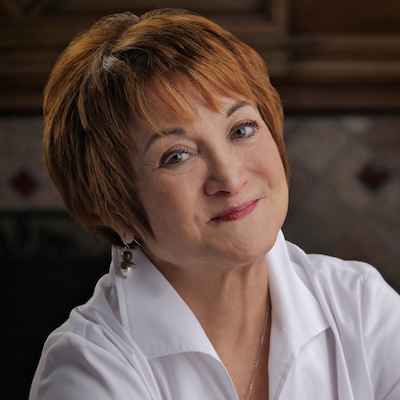What to Consider Before Opening Up a Restaurant
Whether you’re planning to open your first restaurant or are already a seasoned professional, you’ll need to take some time to consider the things that go into starting a restaurant. There is no denying that the restaurant business has a lot of challenges, including many factors that need to be considered. So, before opening up your business, here are some things you need to consider.
Choosing a name
Choosing a name before opening a restaurant is a critical step in planning. It’s a tricky task that can take weeks or even months. Fortunately, there are a few tips you can use to get started. The most obvious is to check the availability of the name on the internet.
Often, you’ll be able to find domain names and social media handles that you can use to promote your business. You’ll also want to check with your local secretary of state to see if the name is available for registration. Also, you want a name that sticks with people, something that’s not similar to other surrounding restaurants.
Setting prices
Setting the perfect price for your latest slasher may well be one of the most important decisions you make as a restaurateur. Setting the correct price will be the difference between the kitchen being filled with hors d’oeurves and a line in the door. The biggest challenge is identifying which of the many viable options fits your business best. Plus, you’ll need to consider how your specialty in the market can match the price.
Creating a website
Creating a website before opening up a restaurant is important to help your business stay connected with local customers and get more bookings. A website is a great way to tell your customers about your restaurant and let them know about specials. You can also use the site to gather contact information from potential customers.
Your restaurant’s website should provide all the information a potential customer needs. This includes the menu, hours, contact information, and location. It should also be optimized for mobile devices so your site can navigate easily.
Develop a business plan
No matter what type of business you want, a business plan must be in place, from a food truck to a full-scale operation. All businesses, regardless of industry, need to have one. Whether you are just starting a restaurant or expanding one, you must develop a business plan before opening a restaurant. This will help you get financing and give investors a clear picture of your actions.
A restaurant business plan should be comprehensive. It should describe the type of restaurant you are opening, its target market, and its legal structure. It should also address risk mitigation strategies. It should also discuss how you will go to market. It should be written in a format that will keep the reader turning pages.
This plan can include a mission statement. Your restaurant mission statement should be unique to your business. It should also summarize the purpose of your restaurant. Sometimes it will include a SWOT analysis and some marketing research too. When developing a restaurant business plan, you should also consider your target market’s size, location, and demographics. You might even want to include a personal business plan for yourself, such as how you will be able to handle burnout and your course of action. You will also want to know the local labor market and wage rates.
Identify your target market
Identifying your target market before opening a restaurant is crucial for a business owner. This is essential for determining which customers to serve and how to advertise your restaurant. The information you gather will help you focus your marketing efforts and increase sales. Knowing your target market is a great way to learn about the types of food and beverages they like. It can also help you understand the types of ambiance that will appeal to them. You can also use this information to develop an advertising campaign that meets their needs.
The best way to find out what your target market wants is to talk to them. This is a good way to get a feel for their lifestyle, values, and habits. Another good way to find out what your target market wants from you is by conducting market research. You can find free market analysis tools online. You can find out what your competition is doing in your industry. You can also use focus groups to determine what your target market wants. Focus groups are quiet and in-depth and allow you to get personal answers to questions.
Obtain licenses
Obtaining licenses before opening up a restaurant is an important step in the process of opening a restaurant. The type of licenses you will need will vary by location and the types of food and drinks you plan to serve. For instance, a restaurant that serves alcohol will need a federal business license. Other permits may be required, such as a building department permit. You may also need a crowd control permit if you plan to serve many people.
Before obtaining any licenses, you should research them and determine their requirements. This will ensure you are compliant with local laws. If you are not, you could face serious penalties. You can find information on the type of licenses you will need by visiting the U.S. Small Business Administration. This organization will also provide you with state-by-state information.
You will also need to obtain a business license from the state or county where you plan to operate. Some states allow businesses to obtain licenses within a week, while others may take months. Sometimes, you may need to pay a fee to the local agency responsible for approving your business. After getting your needed license, you should then hunt for the best restaurant insurance that you can get.
Select suppliers
Choosing the right suppliers is crucial to the success of your restaurant. When deciding on suppliers, ensure they offer the necessary equipment and products. They should also offer high-quality products that taste great and are packed hygienically. This can save you money in the long run. Your supplier should also offer technical information about the products you buy. This includes the ingredients’ origin, food safety regulations, and recipes. You should also receive samples of the products to test in the kitchen.
Another important relationship for a restaurant owner is with a purchasing manager. This person should have an efficient process for restocking supplies. It is also important to have backup suppliers in case one is unavailable. Before choosing a supplier, ask about their customer service, payment methods, and experience. You should also make sure they offer a wide range of services. You should also check if they have a return policy.
Create a unique menu
Creating a unique menu before opening a restaurant can take time and effort. It involves more than just listing dishes and fonts. It also involves spacing, colors, and composition. A well-designed menu can lead to sales. It can also persuade customers to purchase high-value items.
Before designing a menu, you should do some research. This includes consulting with staff and looking at your competition. This will help you find areas of weakness. You should also design a menu that is easy to read. It should be composed logically and arranged in columns. This will instill a sense of sophistication.
You should also use appealing images and descriptive copy. This will help guests understand what they are ordering. Also, use a color scheme that will match the restaurant’s brand. A simple color scheme of three colors can be effective. You may also want to add some blue or orange to stimulate customers. Before designing a menu, you must consider how many items you list. Too many items can overwhelm customers. To avoid this, limit your menu to ten options per category. You should also consider how many pages you will need to list the items.
Originally Published on https://www.breakfastleadership.com/





























Already a Member? Login Here.
Not Yet a Member? Join the Conversation Today!